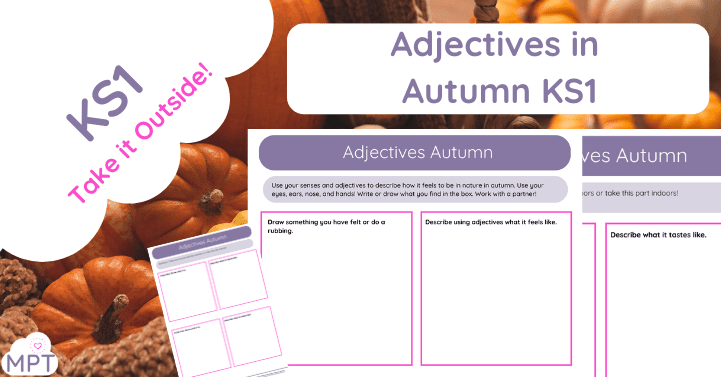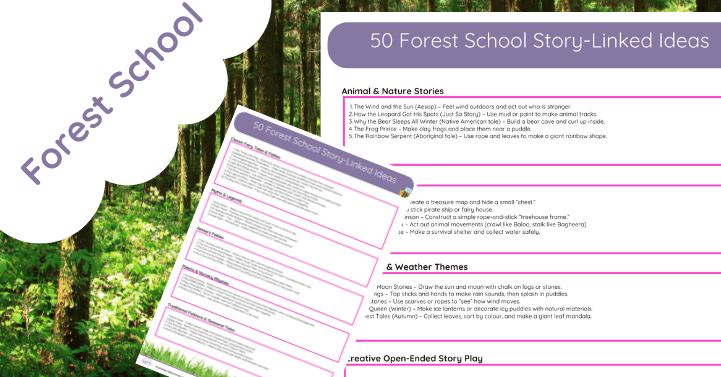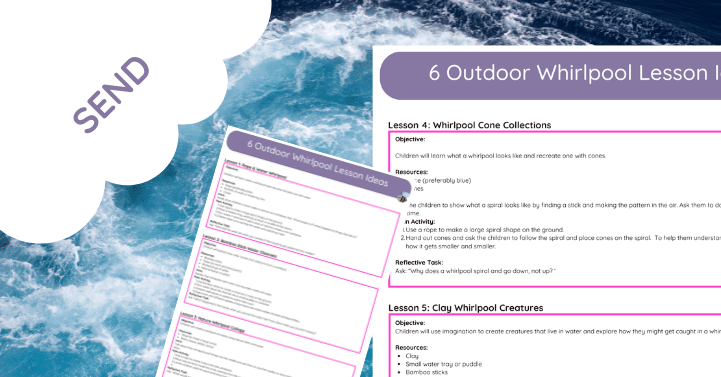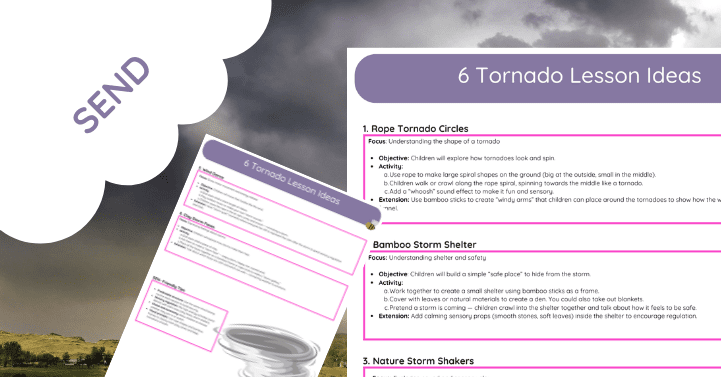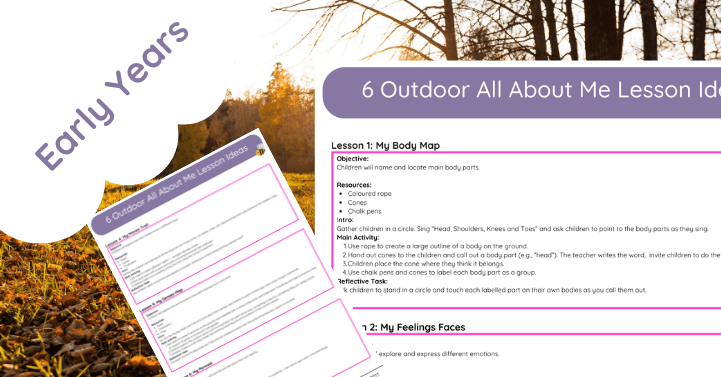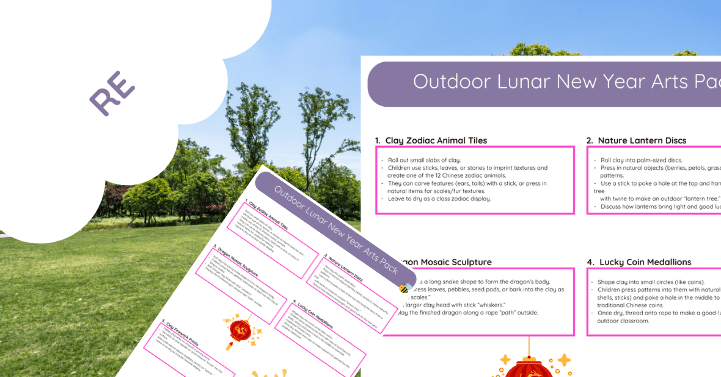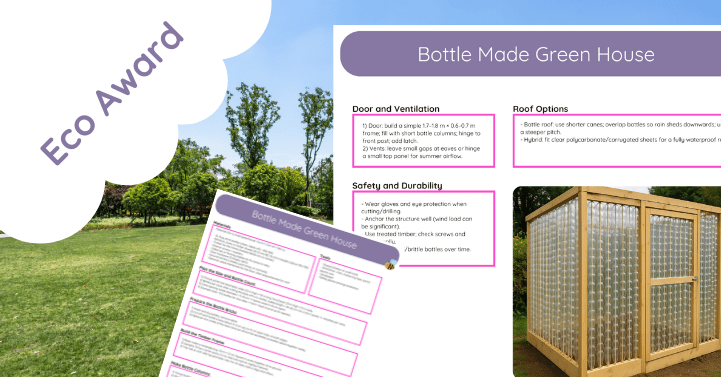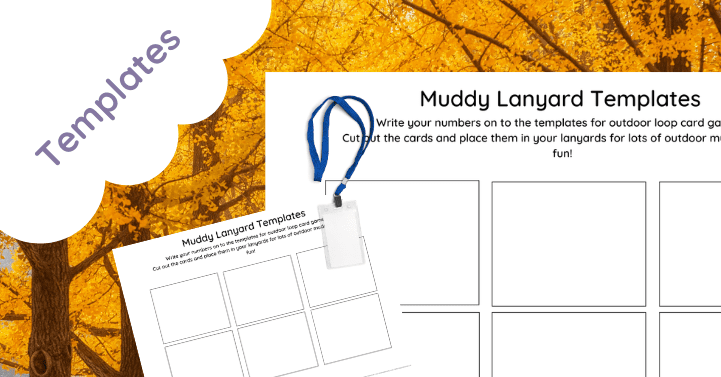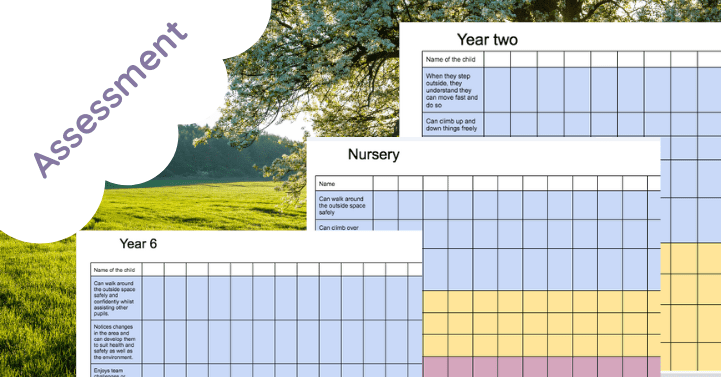Adjectives in Autumn KS1 Outdoor Worksheet
Bring the beauty of autumn to life with our “Adjectives in Autumn” KS1 Outdoor Worksheet! This engaging worksheet is designed to help young learners explore descriptive language in a hands-on, sensory-rich outdoor setting. Perfect for autumn-themed lessons, this worksheet encourages children to observe the world around them and describe it with vivid adjectives, building their vocabulary and creative writing skills.
Key Features:
- Hands-On Learning: Designed for outdoor exploration, this worksheet lets children immerse themselves in the colours, textures, and sounds of autumn while building their language skills.
- Focus on Adjectives: Children will practice using descriptive words to capture the essence of autumn, enhancing their vocabulary and ability to express observations creatively.
- Supports KS1 English Curriculum: Aligned with KS1 objectives, this activity supports literacy development and connects descriptive language with real-world experiences.
- Interactive and Engaging: Children are guided to describe leaves, weather, wildlife, and more, making language learning fun and memorable.
- Ideal for Classroom or Home: Whether used in a school garden, local park, or backyard, this worksheet offers a flexible and inspiring way to practice language outdoors.
Encourage children to discover and describe the magic of autumn with our “Adjectives in Autumn” KS1 Outdoor Worksheet. It’s the perfect seasonal activity to inspire creative expression and a love for language and nature! 🍁📚
The Advantages of Teaching Adjectives Outside Through Active Play for Neurodivergent Children
Learning language and vocabulary, particularly adjectives, is an essential part of early education. For neurodivergent children—those with ADHD, autism spectrum disorder, sensory processing disorders, and other neurological differences—learning in traditional, indoor settings can sometimes be challenging. Engaging neurodivergent children in active, outdoor learning experiences makes learning fun and supports their unique needs. In this blog post, we’ll explore the benefits of teaching adjectives outside in active ways and share helpful resources for further reading.
1. Enhancing Sensory Engagement
For many neurodivergent children, sensory input plays a significant role in their ability to focus and process information. The outdoors provides a variety of sensory experiences that make learning adjectives more engaging and meaningful. Children can touch rough tree bark, feel the cool autumn breeze, or see vivid fall colours, which enriches their descriptive vocabulary.
According to Pathways.org, sensory engagement supports brain development and builds important connections that are beneficial for learning. Using the natural environment to introduce adjectives like “rough,” “soft,” “bright,” or “crunchy” makes learning adjectives easier and more memorable.
2. Promoting Physical Movement for Better Focus
Physical movement has been shown to improve focus and cognitive processing, especially for children with ADHD or high energy levels. Taking vocabulary activities outside encourages children to actively explore their environment and engage their whole body in learning.
The American Academy of Pediatrics (AAP) emphasizes the importance of physical movement for learning, highlighting that outdoor play and physical activity help children focus better and retain information more effectively. Describing what they see, hear, and feel while moving around allows neurodivergent children to express themselves dynamically.
3. Supporting Emotional Regulation
The outdoors naturally helps children manage emotions by providing calming, spacious, and sensory-rich environments. Learning adjectives outside gives neurodivergent children an opportunity to practice descriptive language in a low-pressure setting, where they can experience moments of calm between activities.
The Child Mind Institute explains that nature-based learning can help reduce anxiety, regulate emotions, and provide a sense of freedom that benefits neurodivergent children. Teaching adjectives outdoors, like “calm,” “quiet,” or “gentle,” helps children connect with both their environment and their feelings.
4. Increasing Vocabulary Retention Through Real-World Application
Learning adjectives in a real-world context allows children to connect words with tangible experiences, which supports vocabulary retention. For neurodivergent children who benefit from experiential learning, physically interacting with the objects they’re describing can solidify their understanding of new words.
As NAEYC notes, hands-on learning and active engagement are especially beneficial for young children. Experiencing adjectives like “prickly,” “smooth,” and “colourful” firsthand helps neurodivergent children remember and understand these words more deeply than simply hearing them in a classroom.
5. Encouraging Social Interaction and Teamwork
Outdoor activities often involve teamwork and cooperative play, which provide opportunities for social skill development. Describing things together allows neurodivergent children to practice social interaction, listening skills, and turn-taking.
According to Autism Speaks, outdoor play can improve social skills by providing a relaxed environment where children feel more comfortable interacting with peers. Activities like sharing adjectives to describe a leaf or discussing the textures of different rocks foster communication skills in a natural setting.
6. Stimulating Creativity and Imagination
The outdoors provides endless opportunities for imaginative play and creativity. Encouraging neurodivergent children to come up with adjectives to describe nature can stimulate their creative thinking and give them the freedom to express their unique perspectives.
Scholastic Parents emphasizes the role of creativity in early childhood development, noting that outdoor experiences inspire children to think imaginatively. For example, a simple tree might be “towering,” “branchy,” or “homey,” sparking creative thinking and building children’s confidence in their expressive abilities.
7. Reducing Overwhelm and Enhancing Focus
Indoor classrooms can sometimes feel overstimulating or restrictive for neurodivergent children. Being outdoors allows children to focus on one sensory experience at a time, reducing overwhelm and helping them engage with learning materials more effectively.
The Center on the Developing Child at Harvard University explains that outdoor environments provide a natural reset for the brain, helping children feel more focused and ready to learn. Adjective-based activities like “find something smooth” or “describe something bright” provide structured tasks in an open, calming space.
8. Supporting Sensory Processing and Self-Regulation
Many neurodivergent children experience sensory processing challenges, and the outdoors can offer a balanced sensory environment that supports their needs. By describing different textures, sounds, and smells in nature, children practice using sensory vocabulary, which can also aid in self-regulation.
Understood.org offers helpful resources on sensory processing and sensory play for neurodivergent children, emphasizing the role of outdoor sensory experiences. Outdoor activities can provide neurodivergent children with a variety of sensory inputs that help them better understand and communicate their experiences.
9. Building Resilience and Confidence
Engaging in outdoor learning encourages neurodivergent children to explore, take risks, and adapt to new environments. By giving children the chance to practice describing objects and experiences outside, they develop resilience and confidence in their abilities.
Harvard’s Center on the Developing Child notes that resilience is built through positive, hands-on experiences. Activities like describing textures, temperatures, or shapes outdoors help neurodivergent children gain confidence in learning independently and adapting to different environments.
10. Encouraging a Lifelong Love for Language and Nature
We create positive associations with language and outdoor play by teaching adjectives in a natural, dynamic setting. Neurodivergent children who experience learning through active play are more likely to develop a lifelong love for language and a lasting connection to nature.
The National Wildlife Federation (NWF) supports outdoor education, which fosters environmental appreciation and encourages exploration. Outdoor adjective activities allow neurodivergent children to connect language with real-world experiences, building a love for both nature and words.
Describe and compare the structure of animals – take it outside!
One a Day Nature Words -Book Two (Vocabulary Builder Early Years)


